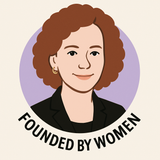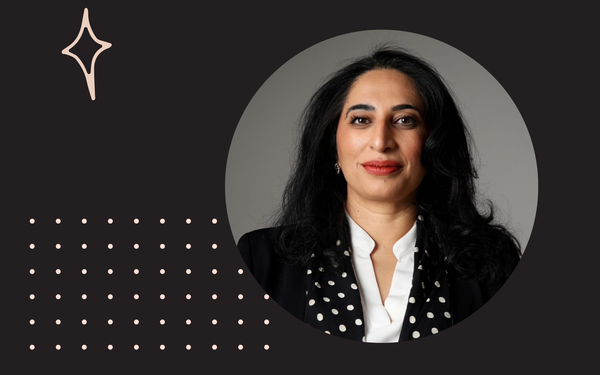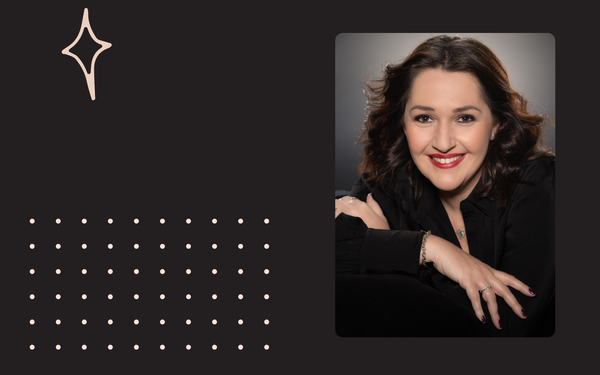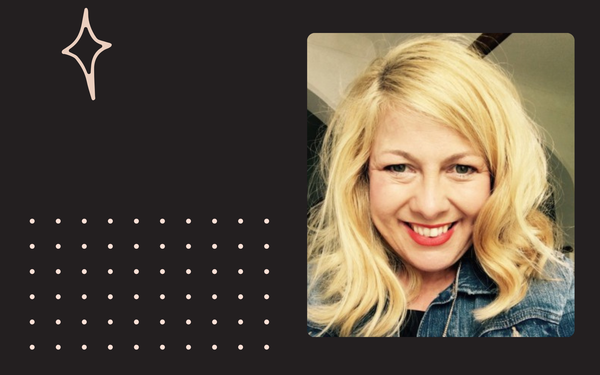From Anthropology to Brand Strategy: Siena Dexter on Building Emotionally Intelligent Brands and Flexible Businesses
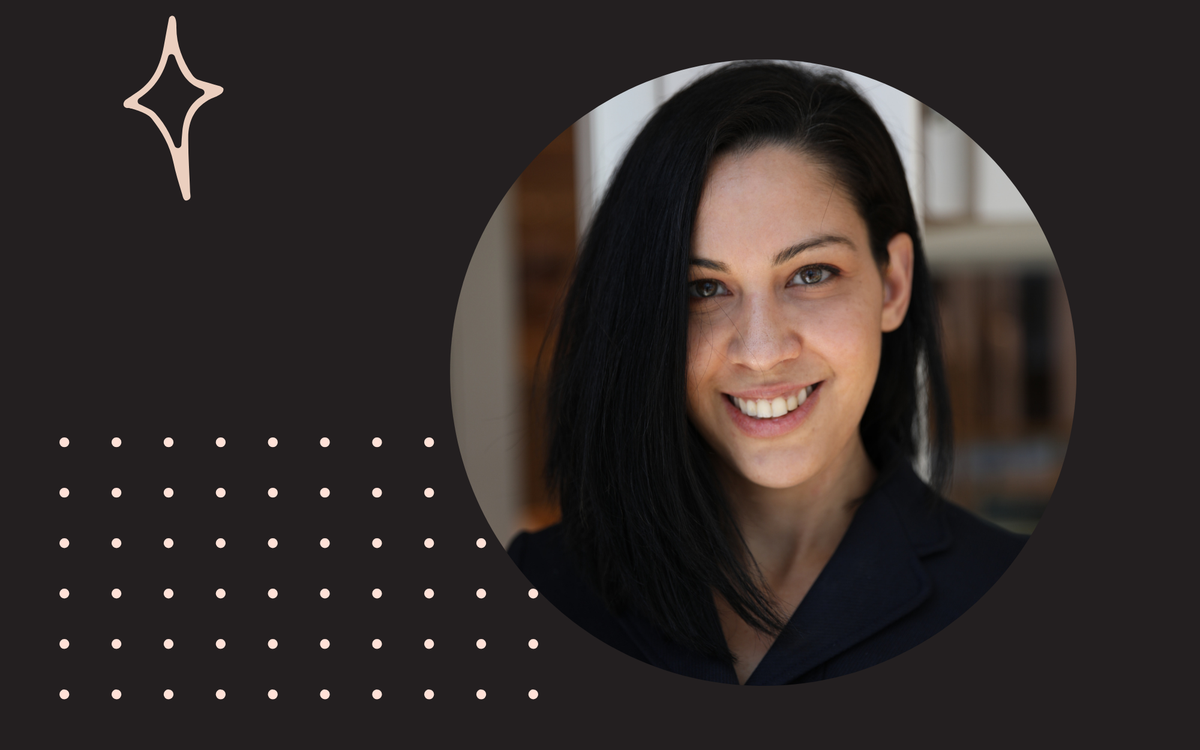
Siena Dexter didn't take the typical path from UCL anthropology graduate to brand strategist—but that unconventional route became her competitive advantage. As founder of Naked Ape Brands, a Bristol-based micro-studio, Siena combines academic anthropology with behavioral science and commercial design to build brands that respond to real human tensions rather than marketing assumptions. Her approach starts with cultural research—understanding the invisible rules, cognitive biases, and emotional pressures that shape consumer behavior—then translates those insights into positioning strategies that drive measurable business results.
But Naked Ape's origin story isn't just about methodology. After experiencing the limitations of traditional agency culture firsthand—including being asked about childbearing plans before accepting a partnership and taking client calls immediately after IVF procedures—Siena founded her agency with a different model in mind. She pivoted from her first agency, Idea Dolls (founded in 2017), to Naked Ape, sacrificing hard-won SEO rankings and brand equity to build something more aligned with both her anthropological approach and her values around workplace flexibility.
In this conversation, Siena shares how sales experience taught her to make anthropology practical, why she restructured her agency around independent collaborators rather than permanent staff, and what drove the difficult decision to rebrand even when the first name was working commercially. Her insights offer a refreshingly honest take on building a service business that accommodates life's realities—IVF, weddings, periods—without pretending flexibility doesn't require real trade-offs.
From Academic Anthropology to Brand Strategy
You studied at UCL and founded Naked Ape Brands with the unique positioning of using anthropology to build emotionally intelligent consumer brands. What drew you from academic anthropology into the commercial world, and how do you translate anthropological insights into practical brand strategies that actually drive business results?
I've always been fascinated by how people behave and why they do what they do. Anthropology let me study that properly – looking at matriarchal versus patriarchal societies, understanding othering and cognitive bias. It helped me see how much of what we call normal is actually learned. Raised more questions than it answered, honestly, but it taught me to approach things with curiosity instead of just applying my own lens to everything.
After university I went into sales, which sounds like a weird detour but it shaped everything. I went from wanting to make documentaries, which paid almost nothing, to cold calling and then consultative selling. Buyer psychology became huge for me. You have to really understand people – what they care about, what they're under pressure to deliver, what they need to feel safe saying yes.
When I eventually moved into copywriting, it all clicked. Anthropology gave me this deep understanding of culture and power and the invisible rules people live by. Sales forced me to make that practical. You see very quickly whether your thinking actually lands or not.
At Naked Ape, anthropology is just how we work. We start with the cultural and emotional tensions around a category. What are people actually trying to solve in their lives? Where do they feel judged or ignored or pushed out? Which stories are shaping how they see themselves?
Then we build strategies that respond to those tensions. That might be qualitative interviews, digging into reviews and forums, mapping what competitors are saying, then choosing a completely different role for the brand. The output is tangible – positioning, messaging, creative platforms that all point in the same direction.
The business results come from being clear about which belief needs to shift and what behaviour that unlocks. Anthropology gives us a structured way to get there. The work ends up grounded in how people actually live and decide, not just what sounds good in a deck.
Creating Change Through Workplace Flexibility
You've been open about founding Naked Ape to support flexible working, particularly after your career was negatively impacted by requesting IVF leave and accommodating working hours. How are you building the kind of agency environment you wished existed, and what advice would you give to female founders about creating businesses that genuinely support women's life realities?
I'm laughing a bit because I don't actually remember talking publicly about this, but yes – IVF shaped everything about how I wanted Naked Ape to work.
Before I started Naked Ape, I'd been made partner at an agency that asked me, before I even joined, whether I was planning on having children and whether I'd come back afterwards. I needed something stable to pay the astronomical IVF fees, so I threw myself in. Twelve-hour days sometimes. It was exciting – brilliant partners, amazing brands. But underneath I was terrified of being honest about what I was going through.
I took a client call an hour after waking up from anaesthetic after an egg retrieval because I felt I had to hide it. Looking back, I wish I'd just said: this is what I'm going through, here's what I need, here's how I'll deliver the work around it. But when I eventually asked for an easier schedule, more time for family stuff, that wasn't really an option. I respected the culture, but it wasn't aligned with how I wanted to live.
Starting Naked Ape forced me to look honestly at what flexibility actually means in a small business. Easy to talk about in theory. In reality, with a young agency, you need all hands on deck. That tension is real and I'm not going to pretend it away.
What's worked best is collaborating with people as individuals instead of building a big permanent team before we're ready. We started with three women full time, now it's just me, but there's this network of independent studios and freelancers around that who can take on a project or turn one down depending on where they are in their own lives. Gives everyone space to protect their health and personal stuff without the whole business falling apart.
Day to day, things like messaging to say I need to skip today, I have my period – that was just normal. No drama. The challenge is finding the balance between that kind of honesty and the consistency a business needs. That's the bit I'm still working out.
Right now I'm trying to be really clear about my own limits and encourage that in others. Around my wedding I told partner agencies and clients I'd be taking two weeks off before and after, my head wouldn't be in work mode. I took the time, made it up around that. Feels healthier than quietly disappearing or trying to do everything badly.
If I have any advice for female founders, it's that this is a moving target. There's no perfect flexible culture, especially early on. You'll make trade-offs. The important thing is keeping the conversation open, being honest about what the business can and can't hold, staying willing to adjust. I'm still figuring it out and I'm okay with that.
The Big Pivot from Idea Dolls to Naked Ape
You founded Idea Dolls in 2017 but pivoted to Naked Ape Brands, even wrestling with losing brand equity and SEO rankings. What drove that major rebrand decision, and how do you know when it's time to make a bold change versus persevering with your original vision?
Idea Dolls was my first agency and I adored it. The whole concept was built around layers behind brands, like a matryoshka doll. Playful, strategic, full of imagination. For a long time it felt exactly right.
Practically, it was working too. We were page one for searches like branding agency London, reliable flow of leads. Walking away from that brand meant walking away from rankings we'd worked hard to earn. We did lose them. That part was rubbish. We're slowly rebuilding visibility under Naked Ape now.
The decision came from realising Idea Dolls didn't reflect where the work was heading anymore. The brand had personality, but there were moments where it felt like the name and concept were taking up more space than the actual purpose, which is launching and growing brands for other people. I also became more aware of how the word Dolls landed. Started to feel out of step with the clients we were attracting and the depth of work we were doing. I still have huge affection for it, but it didn't feel like the name I wanted to carry into the next decade.
Naked Ape felt closer to where the agency was naturally evolving. Ties directly into anthropology and how we look at consumer behaviour, culture, decision-making. Gives us a language for the mix of research and creative direction we bring to fast-growing brands. We're still shaping how this brand lives in the world, but it already feels more aligned.
As for knowing when to pivot – no perfect formula. I look at whether the name still fits the clients you're actually serving, whether the brand supports the conversations you want to have, whether you keep coming back to an idea that feels truer. Rebrands come with cost. Financial, emotional, practical. You lose equity, confuse search, have to reintroduce yourself. But there's also a cost to holding on to something that doesn't fit anymore.
For me, the turning point was realising that staying with Idea Dolls would eventually limit the work and partnerships I wanted to build. Naked Ape feels like a better foundation for where we're going next. Still figuring it out as I go, but it's the right direction.
Are you a woman leader with an inspiring journey to tell? Founded by Women is on a mission to elevate and amplify the voices of women making an impact.
If you're breaking barriers, driving change, or paving the way for others, we’d love to feature your story. Get in touch with us today!
👉 hi@foundedbywomen.org
